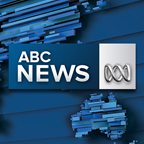
Posted
A Uyghur woman reportedly under house arrest has responded to comments made by a Chinese diplomat on Q+A that she and her Australian son preferred to live in China's autonomous region of Xinjiang instead of Australia.
Key points:
- China's Wang Xining claimed Ms Wumaier wanted to stay in China
- Ms Wumaier was pictured holding up a sign contradicting Mr Wang's claims on Twitter
- The Australian Government has previously called on China to allow the family to leave
Wang Xining — the deputy head of mission at Australia's Chinese embassy — told Q+A Nadila Wumaier and her son, Lutfy, had told the local government they did not want to leave the country.
This was made in reply to a question from her husband, Sadam Abdusalam, who asked the diplomat about their fate and that of other Uyghurs in China.
"The girl with the son told the Government in Xinjiang she would not like to come to Australia," Mr Wang said.
"This is the story, the information provided by the regional government."
But in a tweet from Mr Abdusalam posted earlier today, Ms Wumaier is pictured holding a sign that reads "I want to leave and be with my husband", dated February 25, with Lutfy behind her, who holds an Australian passport.
Chinese authorities have prevented her from leaving the country — despite the Australian Government formally requesting Beijing allow the Australian toddler and his mother.
The ABC has contacted the Chinese Embassy in Australia for a response from Mr Wang to Mr Abdusalam's tweet, but a reply was not received before deadline.
'What would you call a two-year-old baby?'
In July last year, Ms Wumaier was previously detained and questioned by Chinese authorities in Xinjiang's capital, Urumqi, following her husband's appearance on a Four Corners episode looking into China's crackdown on its Uyghur ethnic minority.
The Turkic-speaking, Muslim-majority population has experienced widescale restrictions on their personal freedoms and cultural expression as part of Beijing's bid to thwart what it calls Islamic terrorism, following violent protests in Urumqi in 2009.
It has been estimated at least 1 million Uyghurs are held in internment camps — which China labels re-education centres — which appears to be the largest imprisonment of people on the basis of religion since the Holocaust.
Uyghurs across the territory have said they are subject to systematic surveillance, which has prevented some from speaking to relatives overseas, for fear of reprisals by local security authorities.
Mr Wang told Q+A the Chinese Government had made a "huge effort to secure safety for the people" due to the "strong growth of radicalism and terrorism in Xinjiang".
Mr Abdusalam told the ABC Uyghurs, like his two-year-old son are far from the "terrorists and extremists" China purports to be defending itself from.
"I was watching Q+A last night and I was laughing — [China's] telling us there are extremists and terrorists but what are you going to call a two-year-old baby?" he said.
"Is he extremist, is he a terrorist?"
Alim Osman, the president of the Uyghur Association of Victoria, described the Chinese Government's approach as "hostage diplomacy".
 Photo:
Alim Osman said he would like Chinese diplomats to answer questions about alleged human rights abuses. (ABC News: Jarrod Fankhauser)
Photo:
Alim Osman said he would like Chinese diplomats to answer questions about alleged human rights abuses. (ABC News: Jarrod Fankhauser)
But Mr Osman said he would like Mr Wang to return to Australian media and continue to participate in discussions.
"We would like to see him come back again to talk about issues regarding human rights abuses," Mr Osman said.
Coronavirus adds layer of worry
Mr Wang also told Q+A Mr Abdusalam held Uzbek citizenship, and was not a Uyghur.
Mr Abdusalam told the ABC he was listed as an Uzbek national to get around China's strict birth-control laws, as he was born as the third child in his family.
"When I was in my Mum's stomach, they almost killed me," he said, adding that his father found a way to get a Chinese official to change his place of birth.
"I'm a proud Uyghur — and ethnically I'm always Uyghur — but on the Chinese IDs, I'm Uzbek."
 Photo:
Mr Abdusalam said he fears for his family's safety as China goes into lockdown amid the coronavirus outbreak. (Supplied)
Photo:
Mr Abdusalam said he fears for his family's safety as China goes into lockdown amid the coronavirus outbreak. (Supplied)
The diplomat also said Mr Abdusalam's marriage was not recognised by Chinese law — something the Uyghur-Australian did not deny.
He said he was married to his wife via Islamic marriage rites — not recognised under Chinese laws — adding he wanted an Australian marriage certificate instead of a Chinese one.
Presently, it is unclear if China will allow Ms Wumaier and her son to leave Xinjiang, and Mr Abdusalam now fears for their health in the wake of the spread of the coronavirus.
Two deaths from the coronavirus have been recorded in Xinjiang, according to the John Hopkins University map documenting the outbreak, and 76 cases have been confirmed in the region.
Mr Abdusalam told the ABC his wife could not leave her house — as with other Urumqi residents — due to travel restrictions imposed by the Government to prevent the virus's spread.
"My wife tells me that everything's getting expensive, and they're short of baby supplies — that's why I'm really worried," Mr Abdusalam said.
"I'm worried about my son and wife's health."
Additional reporting by Jason Fang
Topics: world-politics, ethics, discrimination, family-and-children, international-law, china, australia






 Add Category
Add Category

